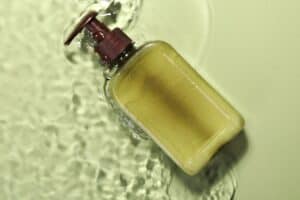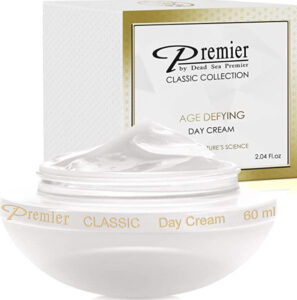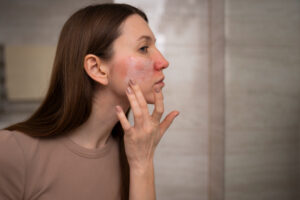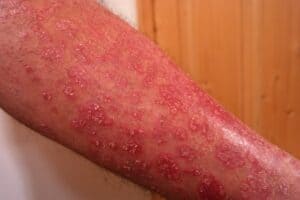Most people invest time and money into skincare products, yet overlook one key factor that touches their skin daily water. The impact of water quality on skin health goes far beyond how water feels on your skin. From dryness and irritation to persistent acne or eczema, water composition often plays a bigger role than the products on your shelf.
Water Isn’t Just Water
Tap water isn’t the same everywhere. Its quality depends on how it’s sourced, filtered, and treated. Even in developed areas, water may contain minerals, chemicals, and metals that strip your skin of essential oils or clog pores, making even the best facial cream feel ineffective.
Your skin’s outer layer works as a shield. But when exposed to harsh water, this barrier weakens. Over time, that exposure can lead to visible damage, increased sensitivity, or conditions that never fully clear up.
Hard Water: A Daily Skin Stressor
Hard water is rich in minerals like calcium and magnesium. These minerals might be harmless to drink, but they cause problems for your skin. Soap and cleanser don’t rinse off easily in hard water. Instead, they leave a residue that clogs pores and creates buildup.
This layer can trap bacteria, leading to breakouts and a rough texture. The minerals themselves also draw moisture away from the skin, leaving it dry, tight, and more prone to flaking. If your skin feels dry even after moisturizing, hard water could be the reason.
Soft Water Isn’t Always Ideal
While soft water sounds like the better option, it’s not always kind to your skin, either. Its lack of minerals makes it easier for products to lather, but that can lead to using more cleanser than needed.
Soft water doesn’t rinse as thoroughly, so the excess product may stay on the skin longer. That can lead to greasy or sticky residue, especially if your skincare routine includes heavier creams, oils, or exfoliants containing sea salt. Your skin needs balance. Too many minerals dry it out. Too few may affect how it handles oils and cleansers.
Chemicals in Tap Water: What You Can’t See Can Hurt
Chlorine is commonly used in city water systems to kill bacteria. While effective for water safety, it can harm your skin’s natural moisture barrier. Chlorine strips away sebum your skin’s protective oil. Without it, your skin becomes vulnerable to environmental irritants.
That leads to dryness, redness, and sometimes itching. People with eczema or rosacea may see their symptoms worsen after just a few days of exposure. Over time, even low chlorine levels can affect skin health if you shower with it daily.
Regional Differences and Skin Reactions
Water quality isn’t the same everywhere. Regional differences in mineral content, filtration systems, and chemical treatments can significantly affect how your skin responds to tap water. These variations often go unnoticed until your usual skincare routine suddenly stops working. Breakouts, dryness, or irritation might appear without warning.
That can become especially common when moving to a new state, where unfamiliar water conditions can introduce higher levels of chlorine, harder minerals, or a shift in pH. Relocating exposes your skin to a new environment, and that change alone can disrupt how your skin behaves. Adapting your personal care routine to fit these new conditions often helps restore balance.
Impact of Water Quality on Skin Health Depends on pH Balance.
According to an article published by the National Library of Medicine, your skin prefers a slightly acidic pH, on average below 5. This natural acidity keeps harmful bacteria in check and supports the skin barrier. Water that’s too alkaline, often due to heavy treatment or pipe corrosion, disrupts this balance. It can leave your skin feeling tight, itchy, or sensitive.
Acidic water, on the other hand, may irritate when combined with certain cleansers or exfoliants. When your skin’s pH is off, even gentle products can feel harsh. Balanced water helps maintain healthy skin function without added stress.
Telltale Signs Your Water is Causing Skin Issues
The effects of poor water quality show up subtly at first. A moisturizer that stops working. A cleanser that suddenly stings. Patches of dryness that don’t improve.
Common signs include persistent tightness, redness, or breakouts despite using quality products. If your skincare routine worked well before, and your skin changes without warning, water may be the hidden cause.
Recognizing these signs early helps you respond before the damage becomes long term. Being aware of the impact of water quality on skin health allows you to make timely changes to your routine and prevent ongoing irritation.
Protecting Your Skin at the Source
One of the simplest ways to improve water quality at home is to install a shower filter. These filters reduce chlorine, heavy metals, and even some minerals. You’ll likely notice softer skin and fewer flare ups within weeks.
Limit hot showers, which amplify the drying effects of hard water. Instead, use lukewarm water and gentle cleansers that don’t rely on harsh surfactants. Apply moisturizer immediately after bathing to seal in hydration. Your water doesn’t have to be perfect. You just need to work with what you have.
Adjusting Products to Match Your Water
When you know your water is hard or heavily treated, your product choices matter more.
Avoid foaming cleansers if your water doesn’t rinse easily. Cream or gel based options remove dirt without leaving residue. Choose moisturizers with hyaluronic acid, ceramides, or glycerin to strengthen your skin barrier.
Some people also find relief using skin care that includes essential oils, which can help soothe irritation and support barrier repair. If you move to a new area, pay attention to how your skin reacts. Adjusting your skincare quickly helps prevent bigger problems.
The Dermatologist’s Role in Water Related Skin Care
If home fixes don’t help, consult a dermatologist. They can determine whether water quality plays a role in your skin issues and recommend specific treatments or barrier-repair products.
They might also suggest patch testing to rule out reactions from water contaminants or additives. Professional guidance ensures you’re not treating symptoms without addressing the root cause.
A dermatologist can help you better understand the impact of water quality on skin health and guide you in making adjustments that support skin recovery.
A Smart Skincare Routine Starts with Water Awareness
Many skin issues don’t start with products they start at the tap. The impact of water quality on skin health often goes unnoticed until problems appear. But once you recognize the link, it becomes easier to protect your skin.
By learning what’s in your water and adjusting your routine accordingly, you can reduce dryness, calm irritation, and support long term skin health. Whether you’re staying put or moving to a new state, understanding how water affects your skin will help you make smarter choices every day.
What do you think?







